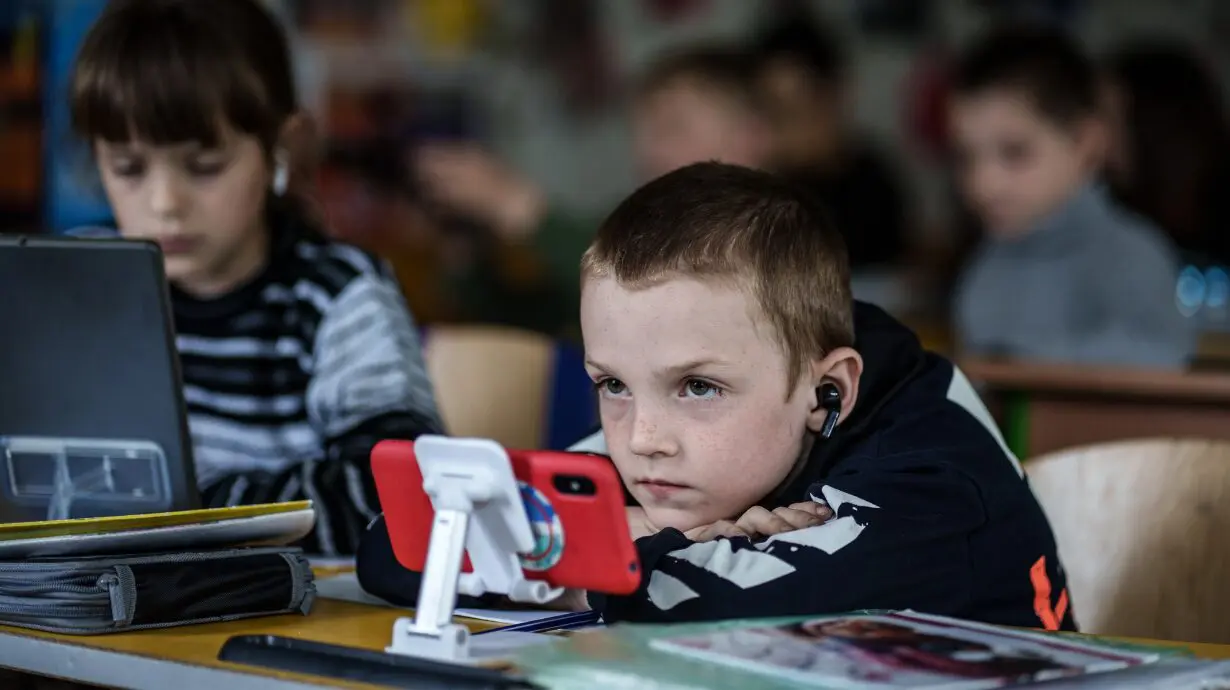Due to a concern about how smartphones might affect the mental health of children, parents have decided not to give smartphones to their kids.
Daisy Greenwell and Clare Fernyhough launched a grassroots group named Smartphone Free Childhood (SFC) in February. Their group created several group chats for parents who are reluctant to give their children smartphones. In just a few weeks of their launch, SFC reached over 60,000 members.
Ofcom, a government-approved regulator for communication services in the UK, reports that nearly all children in the UK have a mobile phone by age 12 (97%).
In the United States, a 2021 survey report by Common Sense showed that almost 42% of ten-year-olds had smartphones. By age 14, it’s about 91%.
The reasons why parents give their children smartphones at an early age vary— from entertainment to monitoring their location and staying in touch with them.
However, research suggests that access to smartphones at an early age could have consequences. Sapien Labs conducted a study last year and revealed that children who get smartphones early might experience more mental health issues. They examined 27, 969 young adults, ages 18-24, over several months across 41 countries. The results showed that 74% of girls who received phones at age six were experiencing distress, compared to 52% who waited until 15. Meanwhile, 42% of boys who got their smartphones at age six experienced distress, compared to 36% who got them at age 18.
Zach Rausch, a research scientist at New York University Stern School of Business, told CNBC Make It, “The mass migration into a phone-based childhood has been harmful to young people. The research has been building, and the evidence of harm has become stronger and stronger year after year.”
Those who received their first smartphone later in their youth showed more positive mental health results, such as reduced feelings of aggression, suicidal thoughts, and experiences of dissociation from reality.
The UK Millennium Cohort Study, which followed children born in 2000 and 2002, found social media linked to various problems - low self-esteem, online bullying, and poor body image. “When smartphones and social media really came together, it created this whole new way of interacting with each other,” Rausch said.
Some governments are intervening. The UK government issued a guidance prohibiting smartphone use in schools and during break times. Similar bans have been implemented in parts of the United States, including Los Angeles, Florida, and Indiana.
Programs like SFC have allowed parents to connect and reduce the feelings of peer pressure and isolation.
The movement has spawned similar initiatives globally. Groups are emerging worldwide in Canada, Mexico, and Australia - all aiming to help parents who have decided to not give their children smartphones.
However, not everyone is convinced smartphones are harming children. Psychology professor Christopher Ferguson told NBC that people often panic about new technology - from TV to video games, and AI.
While the debate continues, the no-smartphone movement is spreading rapidly, indicating that parents are concerned that smartphones might be negatively impacting their children’s mental health and social lives.

 What to know about Lori Chavez-DeRemer, Trump's pick for labor secretary
What to know about Lori Chavez-DeRemer, Trump's pick for labor secretary
 White House officials meet with telecoms execs on suspected China hack
White House officials meet with telecoms execs on suspected China hack
 US judge rejects SEC bid to sanction Elon Musk
US judge rejects SEC bid to sanction Elon Musk
 Negotiators work through the night at UN climate talks to try to reach a cash deal for poor nations
Negotiators work through the night at UN climate talks to try to reach a cash deal for poor nations
 As fast fashion's waste pollutes Africa's environment, designers in Ghana are finding a solution
As fast fashion's waste pollutes Africa's environment, designers in Ghana are finding a solution
 Louisiana lawmakers pass income and corporate tax cuts, raising statewide sales tax to pay for it
Louisiana lawmakers pass income and corporate tax cuts, raising statewide sales tax to pay for it
 Chase Elliott named NASCAR's most popular driver for 7th straight season
Chase Elliott named NASCAR's most popular driver for 7th straight season
 76ers center Joel Embiid sidelined due to swelling in his left knee and will miss two games
76ers center Joel Embiid sidelined due to swelling in his left knee and will miss two games
 Royals acquire second baseman Jonathan India from Reds for right-hander Brady Singer
Royals acquire second baseman Jonathan India from Reds for right-hander Brady Singer
 Parents worldwide want their kids to stop using smartphones
Parents worldwide want their kids to stop using smartphones






